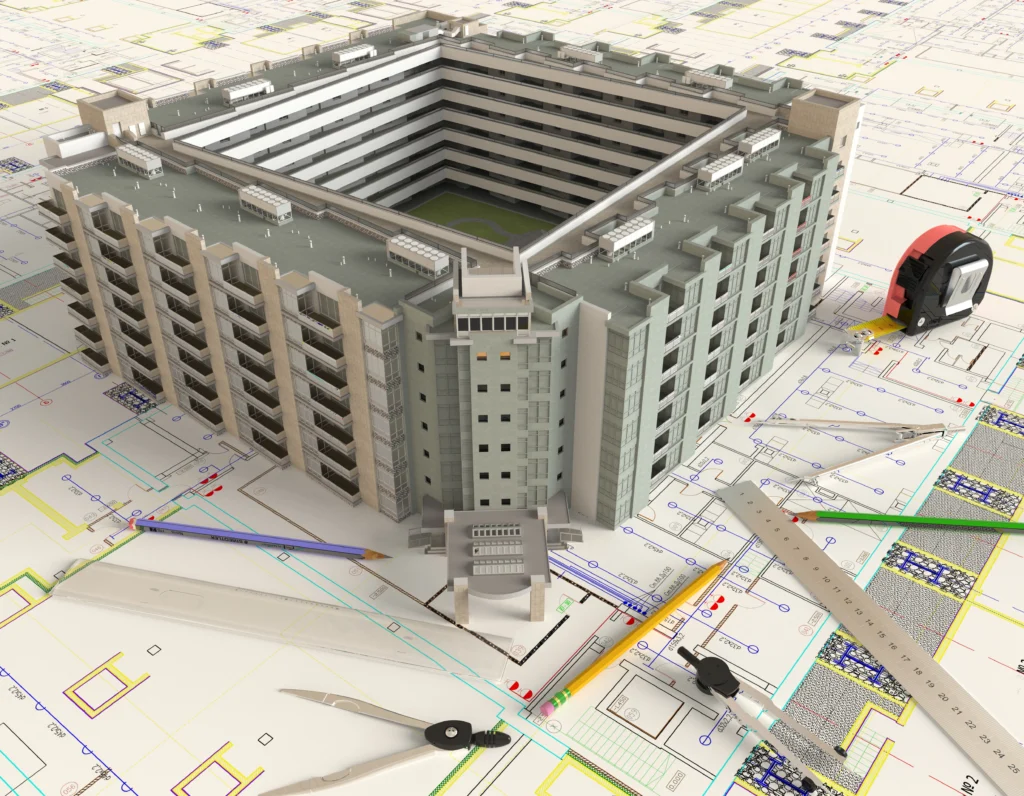Understanding the commercial building appraisal process is essential for anyone involved in real estate whether you’re buying, selling, refinancing, or investing in commercial properties. Yet, many stakeholders often overlook this critical step, not realizing how much it can impact decision-making, financial planning, and investment returns.
This article answers the most common questions around commercial property valuation and provides a deep dive into why it’s not just a formality, but a fundamental tool for risk management and long-term growth.

What Is a Commercial Building Appraisal?
A commercial building appraisal is a professional assessment of a property’s market value, performed by a commercial real estate appraiser. Unlike residential appraisals, this process involves deeper analysis and often includes income potential, zoning laws, tenant leases, and comparable property sales.
Appraisals ensure buyers don’t overpay, lenders avoid risky loans, and sellers price their properties fairly.
Why Is Commercial Property Valuation So Important?
The process of commercial property valuation is more than a box to check. It plays a critical role in:
- Securing financing
- Determining insurance coverage
- Settling legal disputes
- Strategic planning for investment
- Taxation and depreciation purposes
An accurate valuation allows for realistic expectations in deal-making and minimizes potential disputes later on.
How Do Appraisals Work for Commercial Properties?
Many people ask, how do appraisals work in the commercial sector? Here’s a simplified breakdown:
- Initial Inspection: A walk-through of the building to assess condition, layout, and compliance with building codes.
- Data Collection: Gathering financial documents, lease agreements, tax info, and more.
- Analysis: Applying building appraisal methods such as the income approach, cost approach, or sales comparison approach.
- Valuation Report: The commercial real estate appraiser provides a detailed report that outlines how the value was determined.
Who Conducts Commercial Real Estate Valuation?
Only a licensed commercial real estate appraiser can legally conduct appraisals for loan underwriting or legal disputes. These professionals undergo strict training and must follow guidelines laid out by the Uniform Standards of Professional Appraisal Practice (USPAP).
Be cautious of unlicensed individuals offering valuation services, they may give inaccurate or biased results.
What Factors Affect Building Appraisal Cost?
The building appraisal cost can vary depending on several factors:
- Property size and complexity
- Location and market conditions
- Intended use of the appraisal
- Timeframe for completion
On average, how much does a property appraisal cost for commercial buildings? It ranges from $2,000 to $10,000+ depending on the above variables.
Most Common Building Appraisal Methods Used
Three primary building appraisal methods dominate the commercial space:
- Income Approach: Evaluates property based on its income-generating potential. Ideal for rental properties or shopping centers.
- Cost Approach: Calculates value based on the land cost plus the cost to replace the building minus depreciation.
- Sales Comparison Approach: Compares similar recently sold properties in the area to determine fair market value.
Each method suits different property types, and appraisers often combine methods to ensure accuracy.
How to Appraise Commercial Real Estate Efficiently
If you’re wondering how to appraise commercial real estate without delays or inconsistencies, start with documentation. Keep your building plans, tax statements, leases, and expense reports well-organized.
Hiring top-rated commercial appraisal management companies can also speed up the process. These firms have networks of vetted professionals and often leverage commercial real estate appraisal software to streamline evaluations.
Can Technology Improve Commercial Real Estate Appraisal?
Absolutely. Tools like commercial real estate appraisal software automate many steps, data collection, analytics, and even report generation. These platforms help appraisers reduce human error and deliver faster, more reliable reports.
That said, software can never fully replace the judgment of a qualified commercial real estate appraiser, especially in nuanced property cases.
What Are Appraisals Really Used For?
When people ask what appraisals are, the simple answer is: they’re used to determine property value. But more specifically in commercial real estate, they serve purposes such as:
- Setting sale or purchase price
- Refinancing or securing a mortgage
- Divorce settlements or estate planning
- Tax assessment appeals
- Investment analysis
An appraisal isn’t just a document but it’s a risk mitigation strategy for stakeholders on all sides.

Are Commercial Appraisals Regulated?
Yes. Commercial property appraisals are subject to strict regulations. Lenders, investors, and courts often require USPAP-compliant appraisals. Regulatory bodies ensure that appraisers stay unbiased, ethical, and professional.
Working with reputable commercial appraisal management companies ensures compliance and helps avoid legal complications.
Key Benefits of Getting a Commercial Property Appraisal
- Real Market Insight
Understand the actual value of your property, not just what you think it’s worth. - Stronger Negotiation Position
Appraisals provide hard data you can use during price negotiations or legal discussions. - Better Loan Terms
A credible appraisal helps you access favorable financing by reducing lender risk. - Investment Planning
Knowing your property’s worth allows for better forecasting, ROI calculations, and strategy building. - Risk Reduction
Avoid overpaying, under-insuring, or misrepresenting your asset in financial statements.
When Should You Get a Commercial Appraisal?
- Before buying or selling a property
- During refinancing or loan applications
- When disputing property tax assessments
- For mergers, acquisitions, or partnership splits
- Prior to estate or succession planning
Timing your appraisal correctly ensures decisions are based on current market conditions.
Choosing the Right Commercial Real Estate Appraiser
Don’t pick just anyone. Look for:
- State licensing and USPAP certification
- Experience in your specific property type (e.g., industrial, retail, hospitality)
- Positive client reviews and references
- Familiarity with local and regional markets
Working with top-tier professionals reduces risk and ensures your commercial building appraisal meets legal and financial standards.
Red Flags to Watch During Appraisal Process
- Appraisers who are vague or evasive
- No mention of which building appraisal methods they’ll use
- Quotes that are unusually low or high compared to the market average
- Lack of certification or licensing
Trust your gut, if something feels off, it probably is.
Conclusion:
In the world of real estate, knowledge is power and a thorough commercial building appraisal gives you exactly that. It brings transparency to complex transactions, helps you avoid overpaying or underselling, and ensures you’re making informed financial decisions backed by data, not guesswork.
At TYKE, we offer trusted, accurate, and timely commercial real estate valuation services tailored to your needs. Our certified commercial real estate appraisers use industry-standard building appraisal methods and cutting-edge appraisal software to deliver reports that lenders, investors, and legal teams can rely on.
Frequently Asked Questions
What is the difference between residential and commercial property appraisal?
Residential appraisals are simpler and based on fewer variables. Commercial appraisals involve income analysis, lease evaluations, and more complex methods.
How long does a commercial appraisal take?
Typically 1 to 3 weeks, depending on property size and documentation availability.
Can I dispute a commercial property appraisal?
Yes. If you believe it’s inaccurate, you can request a review or provide additional data for reconsideration.
Is a commercial building appraisal necessary for refinancing?
Yes, most lenders require an updated appraisal before approving a new loan.
How much does a property appraisal cost for office buildings?
Anywhere from $2,500 to $7,500, depending on location, size, and complexity.
Can appraisal software replace a human appraiser?
Not entirely. Software assists with data and speed but lacks human judgment.
What’s included in a commercial appraisal report?
Market data, income analysis, property photos, zoning info, and final valuation.
Do appraisals expire?
They typically remain valid for 3 to 6 months, but banks may request updates for older reports.
Are there different standards for different property types?
Yes. Hotels, warehouses, and retail buildings all require specialized appraisal approaches.
Can I use the same appraisal for multiple lenders?
Not always. Some lenders require appraisals ordered through their specific AMC (Appraisal Management Company).
